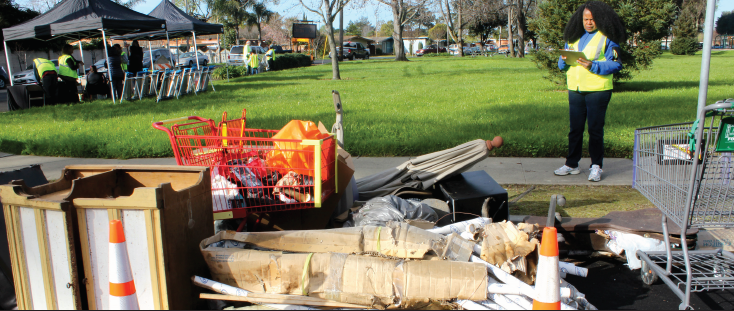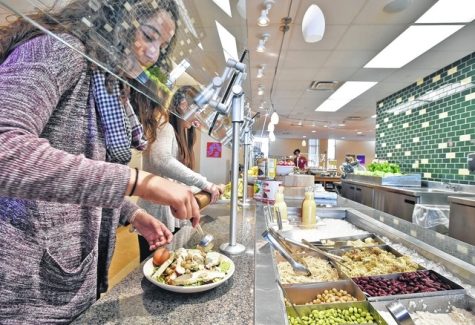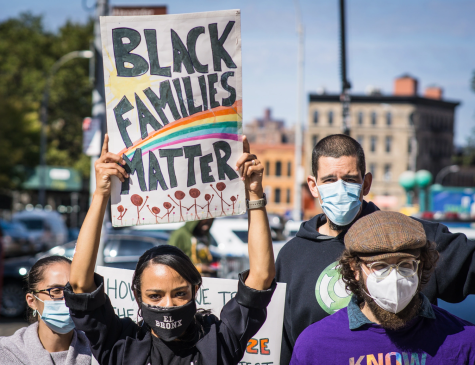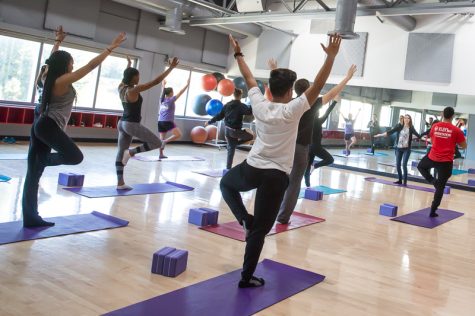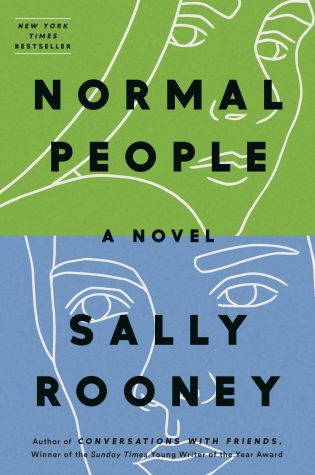Why community service is important
March 15, 2017
On a recent Saturday morning, I attended a clean up event held by the Keep Hayward Clean and Green Task Force, a program created by former Hayward Mayor Mike Sweeney in 2007 to help reduce the amount of litter in Hayward.
As I watched, 10 people including families, the mayor and city council members pick up fast food bags, napkins, cigarettes and other types of litter at Ruus Park in South Hayward, I felt invigorated because I love seeing other people bond through community service.
Suddenly, a wave of disappointment interrupted my joy when I remembered how most of my peers dislike community service. Throughout my life, I always suggested to my friends that we do community service on our free time. Whether it was beach cleanups or volunteering at an animal shelter, they preferred not to wake up early and opted not to go because it didn’t sound entertaining.
Every spring term, Cal State East Bay freshman are required to partake in the Freshman Day of Service or FDoS, a day where CSUEB freshmen volunteer at non-profits in the Bay Area.
The FDoS is a mandatory service day where freshman students assist Bay Area organizations that are involved in habitat restoration, trash cleanups, prepping and packing items with organizations like the Alameda County Food Bank, the Cystic Fibrosis Foundation, Hayward Public Library, Mt. Eden High School and Port of Oakland, according to the FDoS website. The community service can last four or five hours.
FDoS began in 2011 to introduce freshmen to different social issues within the community like food insecurity, according to director of Freshman Day of Service, Mary D’Alleva. It also aims to help freshmen meet new people and represent the university. The service day is hosted by East Bay’s Center of Community Engagement and general studies department.
“I think it helps you to get involved but I don’t think it helps keep you aware on [social issues],” Maryah Franklin, a first-year ethnic studies major told The Pioneer. “It’s at the end of the year and it’s a one-time thing, so I feel like it’s not as effective as it could be.”
I understand that four or five hours may not seem like enough time to understand social issues, but from my experience, it is. One of the organizations freshmen will be working with this year is Open Heart Kitchen, where they will prepare and serve food to local residents who are dealing with food insecurity.
Over 20,000 hours of community service have been logged since 2011 and out of the approximately 1,500 freshmen attending CSUEB, 1,390 are currently registered for a FDoS project, according to senior coordinator of Operations and Partnership, Andrea Wells.
“It is important for them to learn about community issues that are impacted on us locally,” Wells said.
Freshman who do not partake in FDoS must do an alternative assignment, such as an essay, assigned by their general studies professor, in order to pass.
Although there are some downsides to the FDoS, like a grade hinging on participation, giving back to the community is something I will always look forward to.
I have early memories of community service and a passion for helping environment since I was in middle school. During my senior year of high school, I was the vice president of PEACE 90805, a club that promoted peace throughout our school by making affirmation cards — index cards that have quotes of encouragement written on them — and hosted discussions of changes we would like to see in our community.
Originally, we had conversations and read quotes from books that had relations to spreading positivity, but I thought if we wanted to bring peace to our community, we needed to get involved with it. I suggested that we help feed the homeless at a local shelter.
Although some of the members were initially not fond of waking up early, but after the day of service, a lot of people said it was a great experience and wanted to do it again.
Whether it’s cleaning neighborhoods, keeping elderly people company or ensuring the safety of children while they play at parks, I enjoy knowing that I can help someone improve their life or I contributed to helping the environment.
When I came to Cal State East Bay during my freshman year in 2012, I was excited to hear that we had to take part of a community service project, but some of my peers weren’t too thrilled about it, which I never understood.
When told that he had to do Freshman Day of Service last year, 19-year-old Austin Teeyarden, a second-year communications major, thought it was pointless. “I think its kinda useless because most kids [in order to] graduate they have to do community service in the first place, so when I was told that I had to do it I thought it was a waste of time.”
In high school, I had to complete 40 hours of community service in order to graduate. I understand that having to do community service in college may make you feel a kid again, but I don’t think it’s a waste of time.
Nicole Stokes, a first-year health science major, thinks that it should not be a requirement because not all freshman have cars and the locations are too far. As a freshman, I moved from Southern California, didn’t have a car and wasn’t familiar with the area. If it wasn’t for a classmate giving me a ride, I would’ve had to use public transportation, which I had very little experience with at the time. As a solution, I think freshman should be given pre-paid BART tickets or transportation provided by the university.
The amount of time you spend helping organizations gives you the opportunity to learn more about it and the area you’re in. One day you might receive an internship from that organization because of your involvement. Also, this may be potentially your first community service event since high school, which looks good on your resume.
Although there could be downsides to going to Freshman Day of Service, I think overall giving back to the community is something I will always look forward to doing and will have my future children do so consistently as well.




